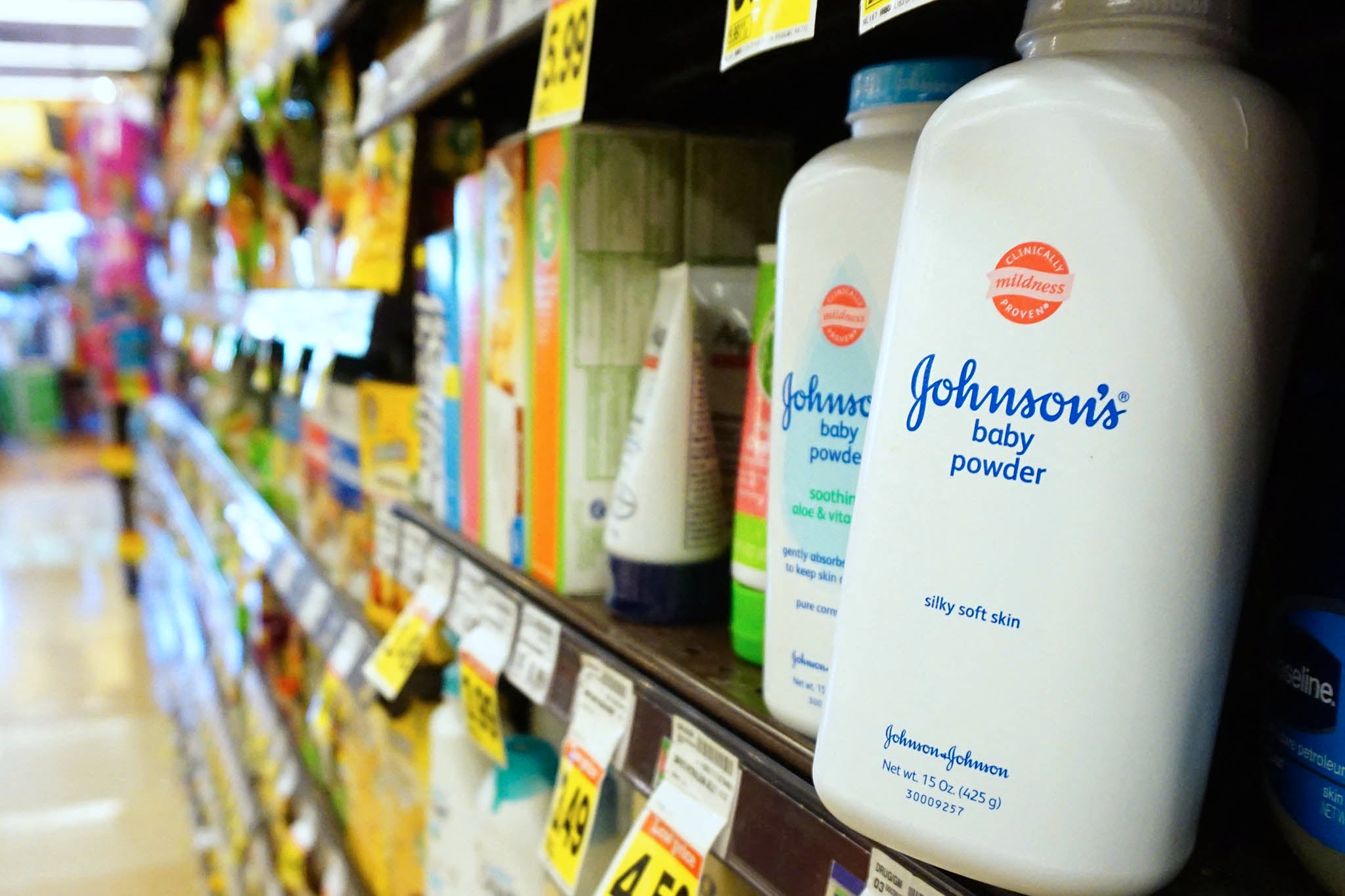‘I felt betrayed’: Woman blames cancer diagnosis on talcum powder use
Exclusive: Jane Campbell is one of thousands of women in the UK planning legal action against one of the world’s largest pharmaceutical firms over alleged links between talc and cancer
A woman has blamed her ovarian cancer diagnosis on talcum powder and said she feels “betrayed” by the manufacturer.
Jane Campbell, who lives in Rochdale, Greater Manchester, is one of thousands of women in the UK planning legal action against one of the world's largest pharmaceutical firms, Johnson & Johnson, over alleged links between talc and cancer.
Lawyers argue the US-based multinational company was aware that having asbestos in its talc products was dangerous from the 1970s onwards, but did not warn customers and continued to both produce and sell the products in the UK until 2022.

Johnson & Johnson denies any responsibility and says independent science “makes clear that talc is not associated with the risk” of the cancers the claimants suffered with.
Ms Campbell, who is 52, said her parents used talcum powder on her after baths when she was young and continued to use it on herself as an adult as well as on her children. She had always considered it to be a safe product.
Discussing her cancer diagnosis, she said she sought medical help after experiencing severe constipation and bladder incontinence and would sometimes wet herself when she stood up.

Ms Campbell, who works as a human resources director, said she was later diagnosed with ovarian cancer in September 2021 but was forced to use private healthcare after facing delays on the NHS.
“It was very harrowing as I had just lost my dad,” she said of learning her diagnosis. “My husband had two heart attacks in March and April, and then my father died in April.
“My dad literally just didn't wake up one morning. I knew ovarian cancer was one of the worst cancers to have.”
She had recently found out her son and his girlfriend were expecting twins and thought she would never be able to meet them after getting the diagnosis.
“I was devastated,” Ms Campbell added. “I thought, ‘I don't want to die’. I don't want to leave my husband or my children, and how is my mum going to cope?”
She then had to quickly undergo a radical hysterectomy, which involved the removal of her ovaries, uterus, appendix and cervix, and part of her stomach plate was removed as the cancer had spread.
“I was an emotional wreck,” she recalled. “I was almost planning my funeral. I didn’t sleep. It was constant. I might go to sleep and wake up at midnight and maybe nod off at 4 or 5 o’clock – I was so scared.”
Ms Campbell explained that she had no idea about the alleged links between talc and cancer while going through treatment. She only became aware of the purported connection after she set up an ovarian cancer support group on Facebook, she said.
“I was upset – again, it is a product which has always been trusted,” she said. “The name J&J is a trusted brand because it is associated with children: kind, caring, soft and gentle. I felt betrayed. If I’d known I would have stopped using it – would I be in this situation?”
She has gone through six rounds of chemotherapy, and six rounds of immunotherapy and was taking chemotherapy tablets solidly for two years, she said.
Ms Campbell explained she had undergone two bowel surgeries this year because of the cancer and nearly died from sepsis. She is now in remission.
She said: “I don’t eat out because I’m afraid to get a stomach bug which could potentially reignite the sepsis because my immunity was so low and I got sepsis and nearly died. The consultant in the critical care didn’t think I was going to make it.”

KP Law, the law firm leading the battle against Johnson & Johnson, has issued a letter before action on behalf of its clients – with Johnson & Johnson having a deadline of the end of this year to get back to them. After this point, documents will be filed in the High Court.
The law firm says it has been contacted by 4,000 possible claimants and is representing around 2,000 at the moment concerning talcum powder allegations.
Tom Longstaff, the lawyer who is leading the UK case, said: “All of the claimants, predominantly women but also some men, who have sustained cancer after using J&J’s talcum powder products have experienced a life-changing illness.
“In some cases, they have died from their cancer, leaving their families devastated. All of these innocent individuals deserve justice.
“There are thousands of women in the UK who will have been diagnosed with cancers that have been identified as being linked to the use of talcum powder and may well have a case against J&J, along with a smaller proportion of men with regard to mesothelioma and peritoneal cancer.”
Erik Haas, worldwide vice president of litigation at Johnson & Johnson, added: "Kenvue, which sold the talc powder products and is responsible for any alleged associated liability that arises outside the US or Canada, spun off from Johnson & Johnson in 2023.
“Johnson & Johnson takes the issue of talc safety incredibly seriously and always has. As our documents show, we have relied upon the most state-of-the-art testing protocols for decades and have been entirely transparent with government institutions and academic researchers regarding our findings.
“Those findings uniformly show the absence of asbestos contamination in Johnson’s Baby Powder and the talc sourced for Johnson’s Baby Powder. Independent science makes clear that talc is not associated with the risk of ovarian cancer nor mesothelioma.”
Join our commenting forum
Join thought-provoking conversations, follow other Independent readers and see their replies
Comments
Bookmark popover
Removed from bookmarks